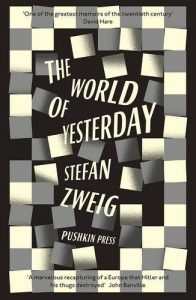My esteemed colleague Adam Ozanne has written a very interesting, short book on the strange absence of the concept of power from mainstream modern economics. The book, [amazon_link id=”1137553723″ target=”_blank” ]Power and Neoclassical Economics[/amazon_link], argues that the fact that economics ignores power in social relations has also affected other social sciences, especially political science, as they have adopted techniques and approaches used in economics.
[amazon_image id=”1137553723″ link=”true” target=”_blank” size=”medium” ]Power and Neoclassical Economics: A Return to Political Economy in the Teaching of Economics[/amazon_image]
What explains the lacuna? Adam dates it to, first, the marginalist turn in economics in the 1870s, which started the process of abstracting from the particulars of reality into formalism; and then to the ordinalism of the 1930s and Lionel Robbins’ insistence that ‘positive’ and ‘normative’ economics could be separated. The new welfare economics of the 1950s finished the job. Indeed, Arrow’s famous impossibility theorem seemed to conclude that we can’t say anything practical about social choice. As the book puts it: “It must seem strange to non-economists that economic and social choice theorists have dug themselves into such a deep hole (though a very tidy, immaculately constructed hole) that they cannot even distinguish between rich and poor, but that appears to be the case.”
However, as Adam points out, an alternative interpretation of Arrow is that the actual social ordering that emerges is a function of the exercise of power (and in a way Sen has made the same point in saying other kinds of information apart from individual utilities can enter the story). The book goes on to argue that the fact that mainstream economics has nothing to say about the distribution of income and wealth is an important part of the explanation for cynicism about the subject – both among the general public and students like our university’s active and enthusiastic Post-Crash Economic Society.
The final chapters of the book discuss how power might be incorporated into economics. It notes that there are signs of stirrings in the ‘New Political Economy’ of economists such as Tim Besley and Torsten Persson and the institutional economics of others such as Daron Acemoglu and James Robinson. Adam suggests an interesting definition of power in economics as an analogy with force in physics, a dynamic that moves the social outcome in the direction of specific groups. He reinterprets classic social welfare functions as ‘political economy functions’ in a way that means they can be used in conventional general equilibrium approaches. His approach can be incorporated into co-operative game theory, a bit of the toolkit economists should feel comfortable with.
The book concludes: “Most economists are in denial about the relevance of power to economics and their own ability to fully address, let alone answer, the For Whom question so long as they neglect power. This is reflected in the textbooks they write and the teaching they offer students, and has not changed even though the sub-prime and eurozone crises of recent years provide clear evidence of the failure of many of their models, in particular dynamic stochastic general equilibrium (DSGE) models. ….. [T]here are grounds for believing that students and the wider public are increasingly disenchanted by what is on offer.” He continues that the normative and the positive need to be distinguished but that economists cannot and should not ignore the former.
I very much liked the book – ie. warmly agree with the general argument. Surely one of the longer-term outcomes of the crisis will be – must be – to turn economics back to political economy. I’ll be thinking more about the specific means of incorporating power in economics that the book suggests; it certainly looks promising.
My one (quite major) reservation about this book is its price (currently [amazon_link id=”1137553723″ target=”_blank” ]£34.45 on Amazon[/amazon_link]). The publicist explained to me that it’s a series intended to be read as e-books, but the Kindle price is still £30, and this for a 110 page book. Piketty’s 700-page [amazon_link id=”B00I2WNYJW” target=”_blank” ]Capital in the 21st Century[/amazon_link] is less than £20 in hardback! So come on Palgrave, do your bit for economics by reducing the price and testing the elasticity of demand. Meanwhile, everyone will have to order it from the library.

 This paragraph describes life in post-WW1, chaotic, hyper-inflating Austria:
This paragraph describes life in post-WW1, chaotic, hyper-inflating Austria: